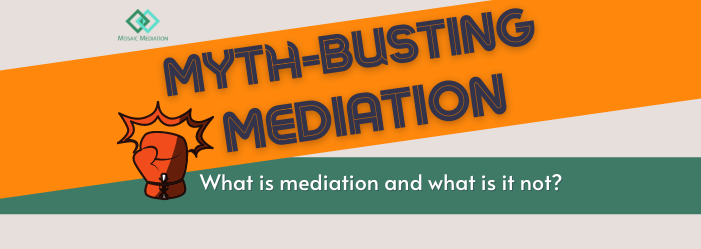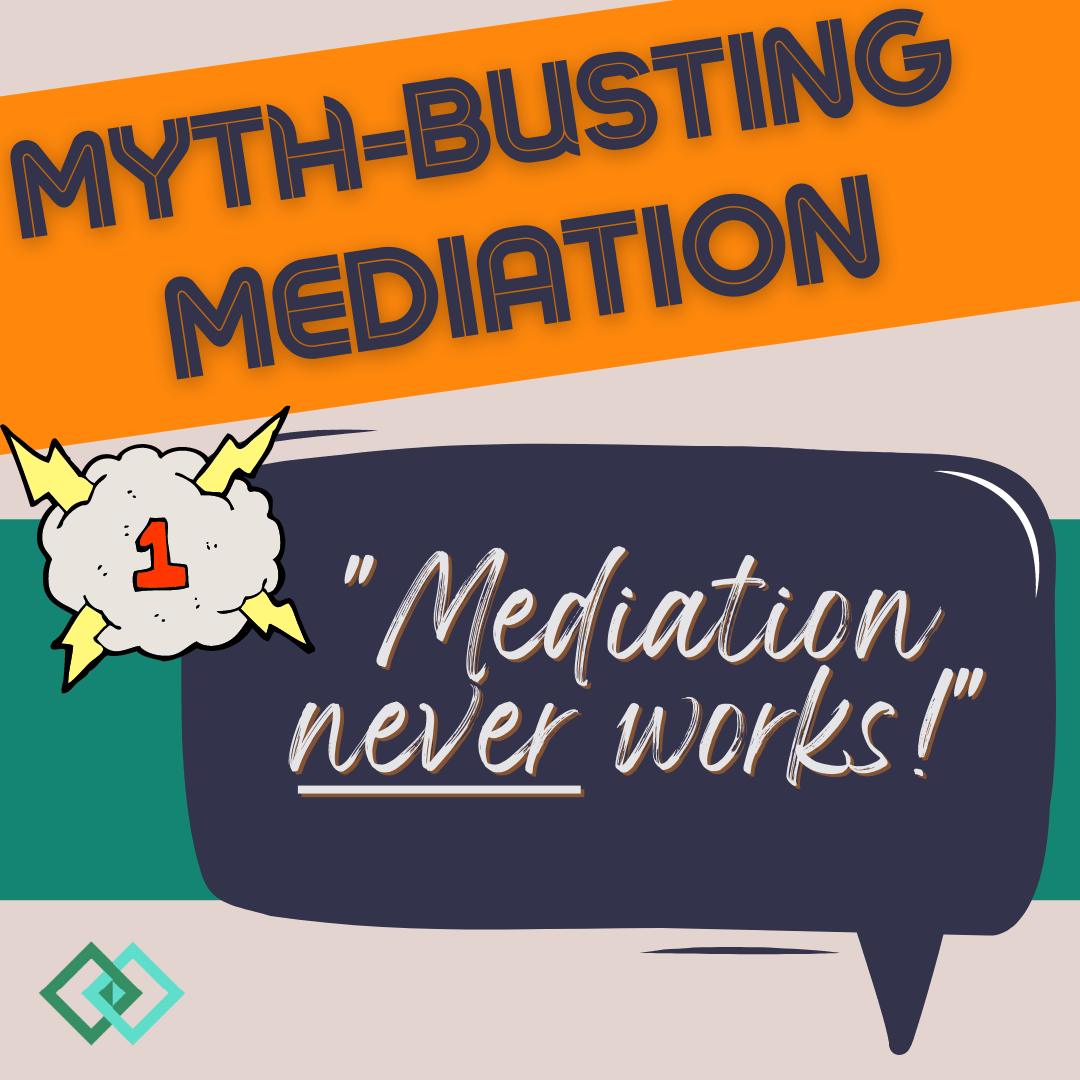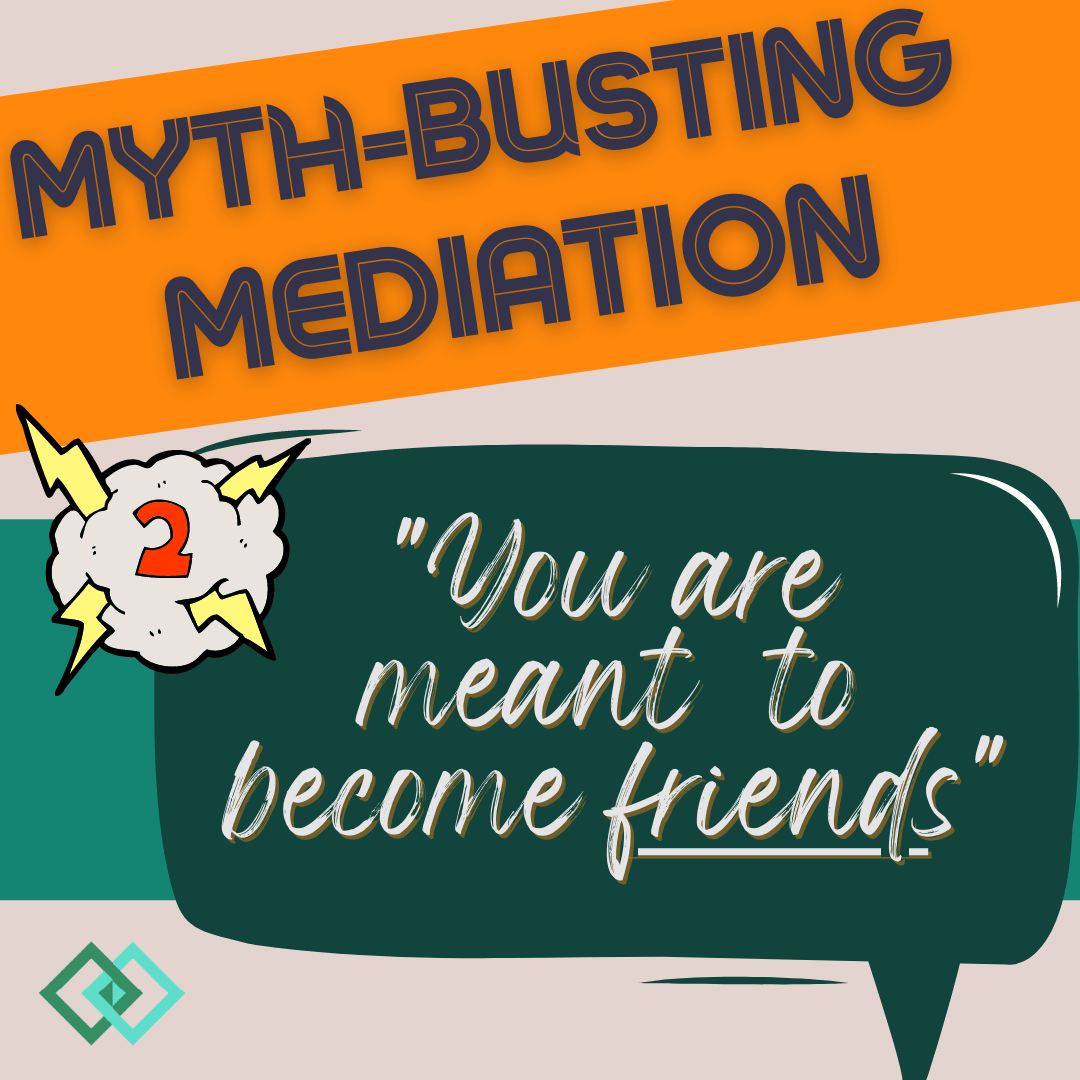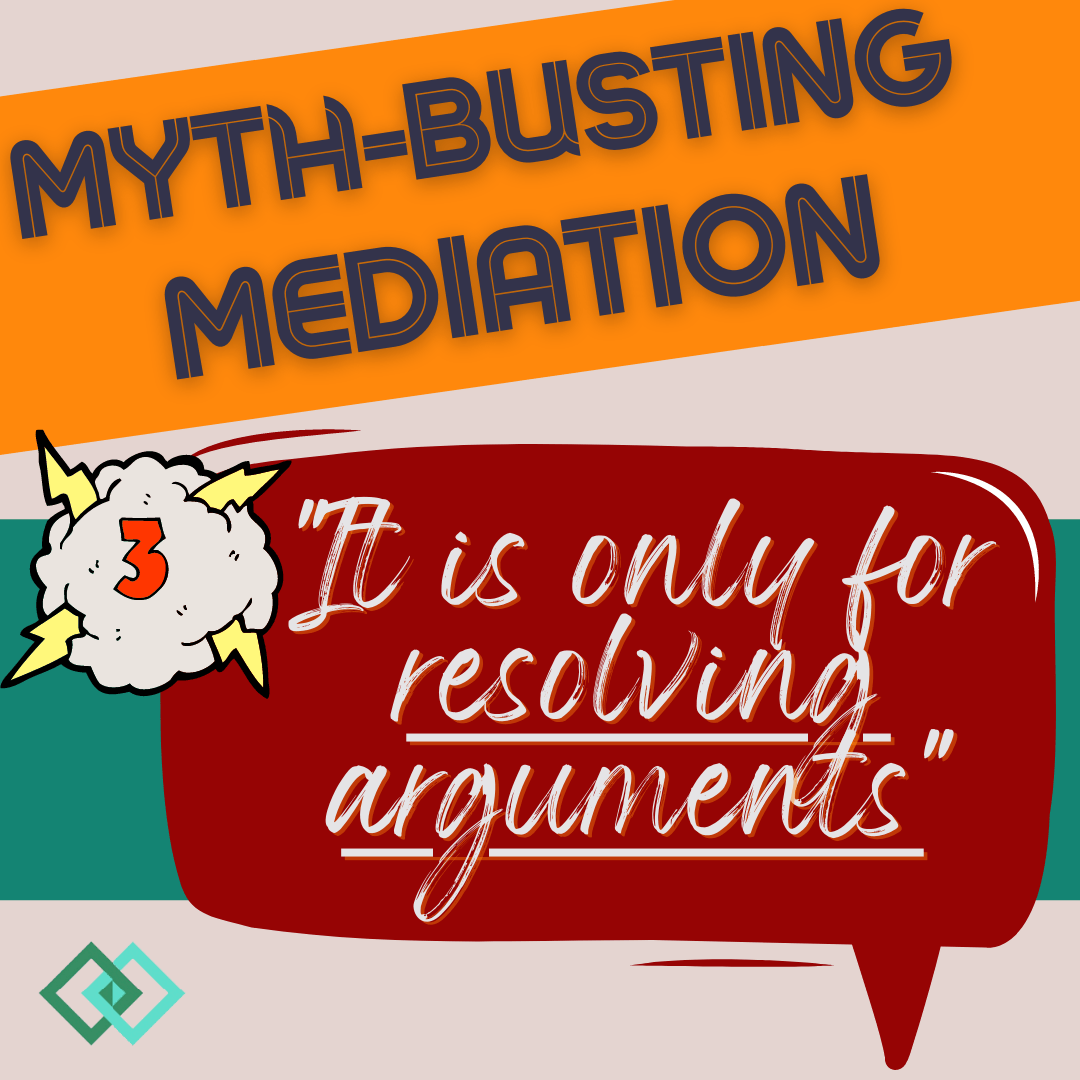Myth ONE: 💥 ”Mediation never works!” 💥
Starting with the facts:
1. The average settlement rate across all types of mediation is between 80-90%. For workplace mediation, it is around 85-90% settlement rate.
2. The 'written agreement' is only PART of mediation. The process alone can be healing, insightful, cathartic, and beneficial. (Even if they don't come out with a written agreement!)
3. Some of the benefits happen AFTER the mediation. Occasionally, people need time to process the day and what was said and then can take steps to move forward.
👉🏼Mediation does occasionally not end in a positive outcome, and that is frustrating. People need to be open to hearing a different perspective and getting into a problem-solving, collaborative mindset. That doesn't always happen, and there can be other obstacles to getting to a mutual resolution as well. (Note: that does NOT have to be the end of the process)
Where improving the relationship was an aim of the mediation, the process should be viewed as a new foundation. Not the conclusion. New habits and mindset changes take time to embed.
For mediations where the mutually agreed outcome is someone leaving the organisation, the process can ensure that they 'leave well'.
👉🏼A good result does not always have to involve everyone staying. That may not be the most beneficial outcome for everyone.
👉🏼One thing to also bear in mind is that mediation is a great tool for conflict resolution and at times benefits from additional complimentary support to follow on from the session - such as training, or coaching, or advisory support for management.
I have seen transformative outcomes for individuals that happen alongside the positive outcome for the issue/relationship.
One of my most treasured is this one from a party to a very complex mediation:
✨“I felt so low about everything and now I am enjoying life. I have learned so much about myself and other people. I now have hope!"✨
👊🏼 So, myth = busted! Mediation does work... VERY often. And, when it does, the results can be extremely impactful.
















